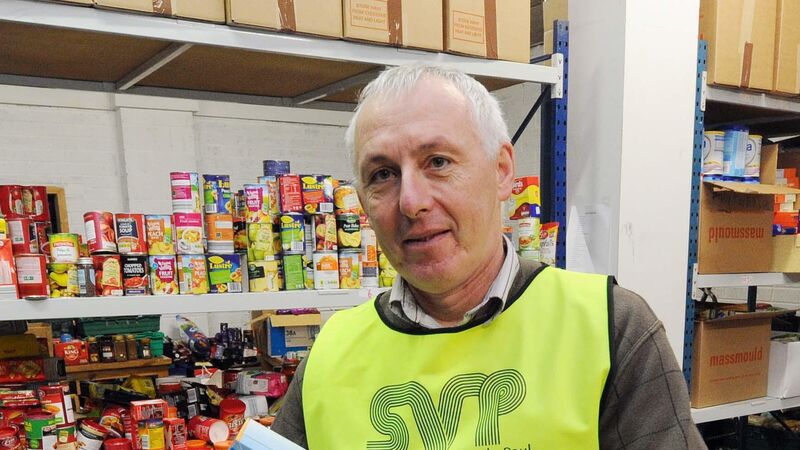SVP reporting increased calls for help from families for ‘all the basics’

Gerry Garvey, regional co-ordinator, St. Vincent de Paul, said the charity is experiencing an increase in calls for help for “all the basics” Picture: Denis Minihane.
The regional coordinator for the Society of St Vincent de Paul (SVP) South West, Gerry Garvey, said the charity is experiencing an increase in calls for help for “all the basics” and he expects August to be “a huge pinch-point” for those in need.
Mr Garvey said that nationally, calls for help are up on last year and that SVP received more calls to date in July this year compared to the same time last year.
“We’re seeing all the same issues of people being completely under pressure because of the low welfare rates and low wages in some cases not meeting the standard of living required,” Mr Garvey said.
The regional co-ordinator for SVP said there have been calls from people who have a substantial build-up of energy bills and who do not know where to turn.
“A lot of people, instead of facing up to bills, leave them off hoping they’ll go away because they just haven’t got the money.
“By the time they’ve come to us, they’ve probably built up a bill for the last six, eight, or 10 months and it has come to the stage where the electricity company has said to them no more credit and we’re going to cut you off if you don’t pay and that’s happening at the moment.
“We had three people who were facing disconnections over the weekend. It’s a huge worry.”
Back-to-school costs
He said other calls for help include back-to-school costs.
SVP had called for the free books scheme to be extended, which has now been extended to the 2024/25 academic year and subsequent years.
“The other thing is voluntary contributions. They’re not voluntary and they need to be gotten rid of.
“Capitation grants are too low. If they were increased a little bit there wouldn’t be any need for the contributions.”
Mr Garvey said that there has been an increase in calls for help for “all the basics”, including food, electricity, and other necessities in life which he said “have all gone up quite a bit over the last 24 months but the level of wages and/or social welfare rates haven’t kept pace so the gap is widening”.
Last year, SVP recorded a quarter of a million calls nationally.
From January to June this year the number of calls was up 5% on the same period in 2023.
The organisation expects calls for help this year to exceed 250,000 nationally for the first time.
“You can see from the national statistics, that the figures are up again on last year so it might slightly dampen for the next couple of weeks but certainly by the second half of August we would expect to have a big onslaught of calls,” he added.
“We’re already getting more in July than we got last year. I would say August is going to be a huge pinch-point.”
Pre-budget submission
SVP published its pre-budget submission in recent days in which it called on the government to deliver an equal and inclusive Budget 2025.
It said that nationally, 913,000 people are going without basics, over 13,500 people are living in emergency accommodation, more than 4,000 children are without a home, 37% of households do not have any money left to save and 546,000 went without heating in 2023 due to cost.
SVP has 16 key recommendations for the forthcoming budget.
Some of those measures include increasing core social welfare rates by €20, improving access to childcare for low-income families and supporting lone parents at work, providing every child in homelessness access to a support worker, extending free books to senior cycle and increasing the capitation grant by 30%, expanding the fuel allowance to low-income working families, and investing in in-school therapy supports for children with additional needs.
Cost-of-living crisis
Dr Tricia Keilthy, SVP Head of Social Justice said “The cost-of-living crisis continues for people in poverty — low pay, lack of adequate income supports, rising housing costs and homelessness, deprivation among refugees and asylum seekers, unaffordable childcare and lack of transport are just some of the challenges we are facing.
“This year’s submission focuses on the key areas that we believe will have the biggest impact of the lives of people experiencing poverty, social exclusion, and lost potential. This is the final budget of the current Government and it is the last opportunity to leave a positive legacy on the lives of individuals, families and children across the country.
“Government must offer hope and show leadership based on the values of human dignity, social justice, equality and the collective good of society. These values must carry through beyond Budget 2025 and into the next Programme for Government.”







 App?
App?


